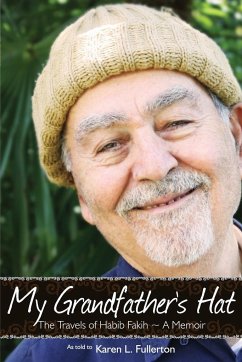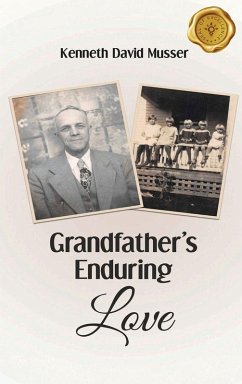
Our Grandfather's Stories

PAYBACK Punkte
36 °P sammeln!
Joseph Emil Dumäski was born on Nov 26, 1921, in Trybuchowce, Buczacz Township, Tarnopol Region. Just prior to the start of the Second World War, he began studies in the Pedagogical Institute in Stanis¿awów. He was a Boy Scout and was named an "adept glider pilot." In November 1939, he was arrested by the NKWD (Soviet Secret Police) for attempting to escape to Hungary to join the newly forming Polish Army. He was imprisoned in Nadwórna and Stanis¿awów and then spent nine months in prison in Odessa. In September 1940, he was sentenced without trial to three years in the Russian Gulag. Fir...
Joseph Emil Dumäski was born on Nov 26, 1921, in Trybuchowce, Buczacz Township, Tarnopol Region. Just prior to the start of the Second World War, he began studies in the Pedagogical Institute in Stanis¿awów. He was a Boy Scout and was named an "adept glider pilot." In November 1939, he was arrested by the NKWD (Soviet Secret Police) for attempting to escape to Hungary to join the newly forming Polish Army. He was imprisoned in Nadwórna and Stanis¿awów and then spent nine months in prison in Odessa. In September 1940, he was sentenced without trial to three years in the Russian Gulag. First he worked in the stone quarries in the Samara Labour Camp, and then in May, 1941 he was sent to the Northern USSR to the Peczora Gulag. Amnesty and release from prison were granted to the Polish soldiers as a result of the Sikorski - Majski Treaty in September, 1941. After difficult travels through the southern part of the USSR, he reached Buzüuk and joined the army of General Anders. As a member of the flight group, Fifth Squadron, he received initial training in Kötubäka, where he was stricken with typhus and spent a long and difficult rehabilitation in hospital. In March 1942, he left the USSR for Persia with the army of General Anders. Further flight training took place in Canada and England. In December 1943, he graduated at the top of his class with the rank of Sergeant - Navigator. During the following war years, he served as a navigator in the 307 Squadron Night Fighters ("Night owls from Lwów") as a member of the Polish Air Force in Great Britain. He was seriously wounded. He was decorated with the Cross of Valour, as well as many other medals. At the end of the war he received the rank of lieutenant. After the war he studied at the University of London, but left in 1947 to settle in Canada, where he continued his studies and was subsequently employed by Ontario Hydro. In retirement, he was an active member of the Polish church, choir and social groups in Toronto, and a member of the Society of "Siberians" in Kraków.














